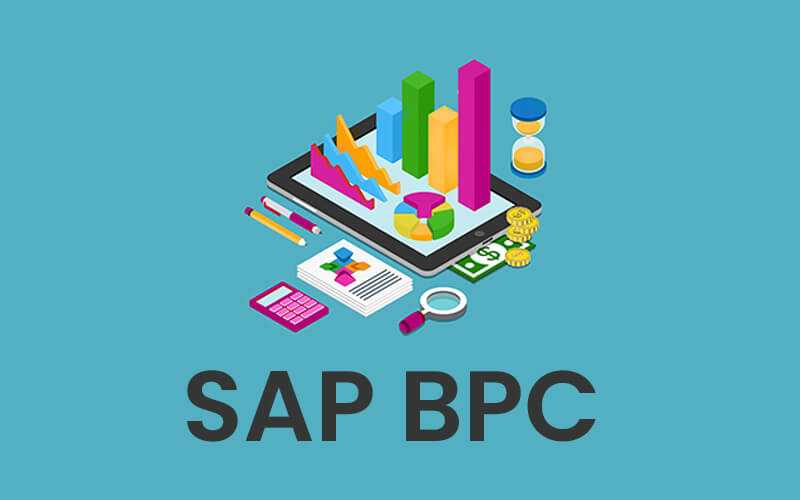Description
Introduction to SAP BPC
SAP Business Planning and Consolidation (BPC) and SAP Data Warehouse Cloud (DWC) are powerful solutions that cater to different yet complementary aspects of enterprise data management and planning. SAP BPC is designed to support financial planning, budgeting, forecasting, and financial consolidation, enabling organizations to make informed decisions based on real-time financial data. It provides a centralized platform for managing and automating financial processes, ensuring accuracy and compliance, and fostering collaboration among departments.
On the other hand, SAP Data Warehouse Cloud (DWC) is a cloud-based data warehousing solution that integrates, organizes, and analyzes vast amounts of data from various sources. SAP DWC allows organizations to create a unified data foundation, combining data from SAP and non-SAP systems to facilitate comprehensive analytics and reporting. It supports data transformation, modeling, and provides real-time data access, empowering users to make data-driven decisions.
By leveraging both SAP BPC and DWC, organizations can streamline their financial planning and reporting processes, integrate their data sources, and gain actionable insights that drive strategic growth.
Prerequisites of SAP BPC and DWC
For effective implementation and use of SAP BPC and SAP DWC, the following prerequisites are recommended:
- SAP BPC Knowledge: Familiarity with financial planning, budgeting, and consolidation processes in SAP.
- SAP DWC Basics: Understanding of data warehousing concepts and SAP DWC capabilities, such as data modeling, integration, and transformation.
- Data Management Skills: Knowledge of data extraction, transformation, and loading (ETL) processes.
- Integration Experience: Familiarity with integrating SAP and non-SAP systems, including SAP S/4HANA and cloud platforms.
- Analytics and Reporting Knowledge: Experience with analytics tools, such as SAP Analytics Cloud, and a strong understanding of business intelligence (BI) principles.
- Basic SQL and Cloud Infrastructure: Understanding of SQL and cloud data infrastructure is beneficial, especially for data modeling and management in SAP DWC.
TABLE OF CONTENT
1. Introduction to SAP BPC and DWC
1.1 Overview of SAP BPC
1.2 Introduction to Data Warehouse Cloud (DWC)
1.3 Key features and capabilities
2. SAP BPC Architecture
2.1 System components
2.2 Integration with other SAP modules(Ref: SAP BTP for Business Process Automation)
2.3 Deployment options
3. Setting Up SAP BPC
3.1 Installation and configuration
3.2 System landscape design
3.3 User and security management
4. Data Modeling in BPC
4.1 Dimensional modeling
4.2 Data modeling best practices
4.3 Working with hierarchies
5. Data Entry and Data Management
5.1 Input forms and templates
5.2 Data import/export
5.3 Data validation and cleansing
6. Business Process Flows
6.1 Designing workflows in BPC
6.2 Automation of planning processes
6.3 Monitoring and managing business process flows
7. Consolidation in SAP BPC
7.1 Overview of consolidation
7.2 Intercompany eliminations
7.3 Currency translation and adjustments
8. Reporting and Analysis
8.1 Reporting tools in BPC
8.2 Creating dashboards
8.3 Ad-hoc reporting
9. Introduction to SAP Data Warehouse Cloud (DWC)
9.1 Overview and architecture
9.2 Key features and functionalities
9.3 Integration with other SAP solutions
10. Data Modeling in Data Warehouse Cloud
10.1 Building data models
10.2 Data ingestion and integration
10.3 Transformation and enrichment
11. Security and Access Control in DWC
11.1 User roles and permissions
11.2 Data security measures
11.3 Compliance and governance
12. Advanced Analytics in DWC
12.1 Predictive analytics(Ref: Edge IoT for Predictive Manufacturing Efficiency)
12.2 Machine learning capabilities
12.3 Advanced reporting and visualization
13. Integration between BPC and DWC
13.1 Connecting BPC with DWC
13.2 Data synchronization
13.3 Coordinated planning and analytics
Conclusion
SAP BPC and SAP Data Warehouse Cloud provide organizations with a powerful combination of tools for financial planning, consolidation, and comprehensive data management. While SAP BPC focuses on enabling accurate financial planning and compliance, SAP DWC offers advanced data warehousing and analytics capabilities, allowing businesses to harness data insights across departments. Together, they provide a streamlined approach to financial operations and strategic decision-making. By adopting SAP BPC and DWC, organizations can enhance their financial visibility, drive growth, and stay competitive in an increasingly data-driven world.






